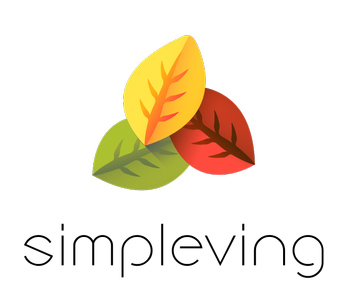In a world where the hustle and bustle often blur the lines between needs and wants, the concept of Living Cheap Without Being Poor has emerged as a beacon of financial wisdom. It’s not just about pinching pennies; it’s about crafting a life that values experiences over excess, fulfillment over fleeting indulgences, and mindful choices over mindless consumption. As we embark on this journey, we’ll navigate the landscape of frugal living, debunk myths, and unveil strategies that empower you to achieve a fulfilling life without the burden of financial strain.
Introduction of living cheap without being
In the pursuit of financial freedom and a fulfilling life, living cheaply has taken center stage. But what does it mean to live cheaply without compromising your well-being? This guide is your roadmap to understanding and embracing this frugal lifestyle with enthusiasm and wisdom.
Understanding the Concept of Living Cheap Without Being Poor

Living Cheap (Without being Poor)
Living cheaply doesn’t equate to living poorly. It’s a conscious decision to prioritize your spending, directing your resources toward what truly matters. By adopting a frugal mindset, you can allocate your funds to experiences and goals that align with your values, ensuring that every penny spent contributes to your overall well-being.
Benefits of Embracing a Frugal Lifestyle
Embracing a frugal lifestyle offers a multitude of benefits beyond just monetary savings. Not only does it free you from the shackles of consumerism, but it also fosters a sense of mindfulness and gratitude. By living intentionally and appreciating the simple pleasures, you can lead a more meaningful and fulfilling life.
Creating a Budget that Works

Creating a Budget that Works
At the heart of successful frugal living lies a well-structured budget. A budget serves as your financial compass, guiding you toward your goals. Begin by assessing your monthly income and categorizing your expenses. Allocate funds for necessities, savings, and discretionary spending. This budgeting approach empowers you to make informed decisions and track your financial progress.
Smart Shopping Strategies

Smart Shopping Strategies
Smart shopping is an art that can significantly impact your financial health. From utilizing coupons and comparison shopping to taking advantage of sales and discounts, there are countless ways to stretch your dollars further. Prioritize needs over wants, and seek value in every purchase, ensuring that each transaction aligns with your financial goals.
Economical Meal Planning and Cooking

Economical Meal Planning and Cooking
Eating out frequently can drain your finances, but the solution is simpler than you think: cooking at home. Embrace meal planning, buy ingredients in bulk, and experiment with affordable recipes. Home-cooked meals not only save money, but they also allow you to savor the satisfaction of creating delicious, cost-effective dishes.
Frugal Transportation Choices

Frugal Transportation Choices
Transportation expenses can add up quickly, but numerous ways exist to cut costs without sacrificing convenience. Consider walking, biking, carpooling, or using public transportation. Evaluate your need for a car and explore alternative options, all of which contribute not only to your financial well-being but also to a greener environment.
Thrifty Entertainment and Leisure

Thrifty Entertainment and Leisure
Entertainment doesn’t have to come with a hefty price tag. Embrace free or low-cost activities, such as hiking, picnics, or movie nights at home. Engage in budget-friendly hobbies and socialize without straining your wallet. By finding joy in simple experiences, you’ll discover that a fulfilling life is well within your reach.
Balancing Health and Wealth

Balancing Health and Wealth
Investing in your health doesn’t have to be costly. Discover affordable exercise options, prioritize preventive care, and explore nutritious yet budget-friendly meal choices. By adopting a holistic approach to well-being, you’ll not only save money on medical expenses but also enhance your overall quality of life.
Investing in Financial Education

Investing in Financial Education
Financial literacy is a key component of successful frugal living. Educate yourself through books, online resources, and workshops to make informed financial decisions. Understanding the nuances of money management empowers you to navigate complex financial landscapes confidently.
Practical Tips for Living Cheap Without Being Poor

Shop Secondhand
Evaluate Your Spending Habits: Take a critical look at your expenses and identify areas where you can cut back without sacrificing your lifestyle.
Prioritize Needs Over Wants: Distinguish between essential expenses and discretionary spending to allocate your resources more effectively.
Set Clear Financial Goals: Define short-term and long-term financial objectives to guide your budgeting and spending decisions.
Embrace Minimalism: Declutter your living space and adopt a minimalist mindset to reduce unnecessary purchases.
Shop Secondhand: Explore thrift stores and online platforms for affordable, gently used items that align with your needs.
Practice Mindful Consumption: Before making a purchase, ask yourself if it adds value to your life and contributes to your overall well-being.
Common Myths about Living Cheap
Myth: Living Cheap Means Sacrificing Quality of Life
Truth: Living cheaply is about optimizing your spending to enhance your quality of life, not compromising it.
Myth: Frugal Living Is Limiting and Boring
Truth: Frugal living encourages creativity, resourcefulness, and the pursuit of meaningful experiences.
Myth: Only the Wealthy Can Afford to Live Frugally
Truth: Anyone, regardless of income, can adopt a frugal lifestyle and reap its financial and personal rewards.
Conclusion of living cheap without being poor
As we conclude this journey into the world of Living Cheap (Without Being Poor), remember that frugality isn’t a mere financial tactic—it’s a way of life that fuels your pursuit of genuine happiness and well-being. By reshaping your relationship with money, embracing conscious consumerism, and prioritizing your goals, you empower yourself to thrive amidst financial challenges. With each deliberate choice, you inch closer to the life you envision—one rich in experiences, fulfillment, and prosperity.
FAQs
Can I still enjoy my favorite activities while living cheaply?
Absolutely! Living cheaply encourages you to find creative and affordable ways to engage in activities you love.
How do I deal with unexpected expenses while on a frugal budget?
Building an emergency fund is crucial. Set aside a portion of your income each month to prepare for unexpected costs.
Is living cheaply the same as being minimalist?
While both concepts emphasize mindful consumption, living cheaply focuses more on optimizing spending to achieve financial goals.
Can I save for the future while living on a tight budget?
Yes, through careful budgeting and prioritizing, you can allocate funds for both immediate needs and future goals.
How do I overcome societal pressure to overspend?
Stay focused on your financial objectives and the benefits of frugal living. Surround yourself with supportive individuals who share your values.


